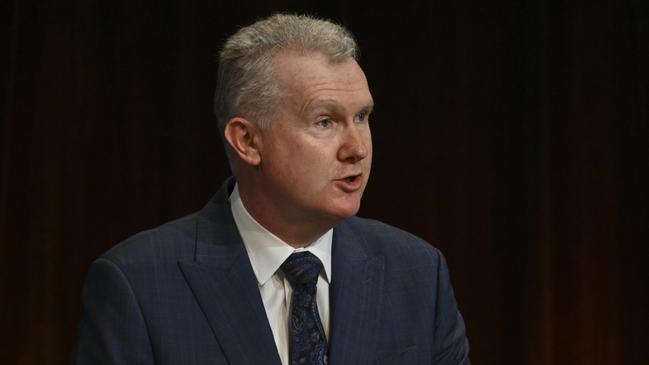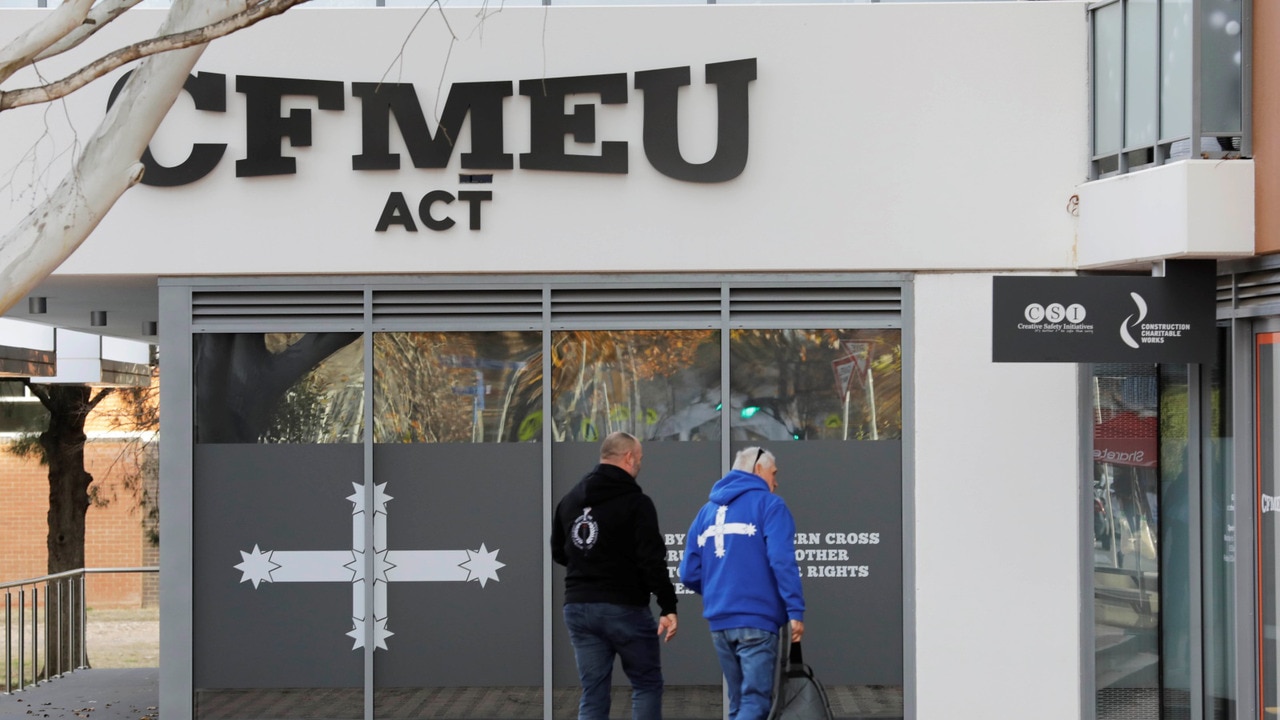CFMEU to be banned from multi-employer bargaining
The CFMEU’s construction division would be effectively excluded from multi-employer bargaining under safeguards proposed in Labor’s IR bill.

The CFMEU’s construction division would be effectively excluded from multi-employer bargaining due to its history of law-breaking under safeguards proposed by the Albanese government to address employer concerns about Labor’s industrial relations bill.
The bill, to be introduced into federal parliament on Thursday morning, also proposes a simplified legal test to approve pay deals and greater arbitration powers for the Fair Work Commission, according to employer and union figures briefed on the changes.
Sources said while workers would have new rights to strike in support of multi-employer bargaining, the Secure Jobs Better Pay bill would effectively stop the CFMEUs construction division from being able to engage in multi-employer bargaining, given its history of breaching federal workplace laws.
The bill proposes that a bargaining agent that has repeatedly breached the Fair Work Act would not be entitled to be a bargaining agent for multi-employer bargaining, a clause interpreted by unions and employers as aimed at the CFMEU’s construction division.
Source said another safeguard would be that a union would have to participate in conciliation with an affected employer before the workers could take industrial action.
Despite the measures to address business concerns, employers said they would fiercely resist the multi-employer bargaining changes. The bill will be subject to a Senate inquiry and employers are trying to get a parliamentary vote delayed until next year.
Employer groups, including the Australian Chamber of Commerce and Industry, are expected to release a joint statement opposing key provisions of the bill after it is tabled in the House of Representatives by the Minister for Employment and Workplace Relations Tony Burke.
Mr Burke told Question Time on Wednesday that the government wanted to open up the existing stream of multi-employer bargaining to get wages moving.
Employer and union sources said the bill simplified the better-off-overall test, with the commission to no longer consider hypothetical working arrangements when determining if workers would be better off under a proposed agreement.
It is understood the bill says the commission will only deal with circumstances that are “reasonably foreseeable”. If a situation arises that could not have been foreseen at the time of the agreement being made, the aggrieved parties can apply for a remedy.

In circumstances where an agreement had been approved by a vote of thousands of workers, and some individual workers claim to be worse off, the commission can approve the agreement and then remedy the situation of the individuals if necessary.
Sources said the commission would have broad powers to resolve bargaining disputes and where a dispute is found to be “intractable”, will be able to arbitrate any outstanding matters. It is believed intractable is defined as the parties have no reasonable prospect of agreement.
The commission will also be able compel attendance of witnesses and the production of documents.
The bill proposes changing the enterprise agreement approval process with the Fair Work Commission to consult employers and unions about simplifying the process.
Sources said the bill would make it “virtually impossible” for employers to be able to successfully terminate agreements as a bargaining tactic and will also finally kill off so-called “zombie” agreements left over from the Howard government’s WorkChoices regime.
The bill scraps the Australian Building and Construction Commission and the Registered Organisations Commission, amends the objects of the Fair Work Act to refer to gender equity and job security; and imposes limits on the use of fixed term contracts.






To join the conversation, please log in. Don't have an account? Register
Join the conversation, you are commenting as Logout